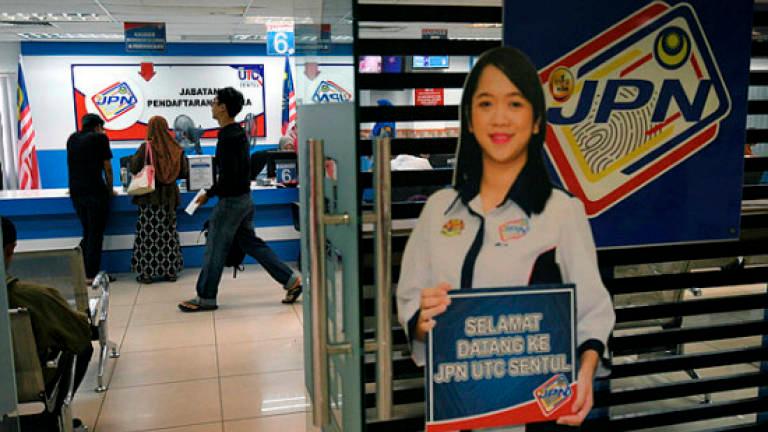ALL kinds of newspaper reports catch our eye each day. On the letters page, one headline extols, “Excellent service at National Registration Department in Putrajaya”. Beside it, another fumes, “Poor counter service at National Registration Department office”. Yet on another day, one letter laments, “Give me service, keep your smile”. Why is there inconsistent service even within the same government department?
Unlike physical goods, which are subject to stringent quality control and can be standardised, the standard of service from a service provider depends very much on the individual. As no two individuals are the same, we can expect the level of service between staff members to differ slightly. Even for the same individual, the service level may drop dramatically on an “off” day. This is a human peculiarity we have to live with. Even so, small differences can be minimised, and there is no excuse for an organisation not to aim for a high and consistent level of service at all times.
Government departments that handle thousands of clients a day, such as the National Registration Department, the Road Transport Department and Immigration Department, have borne the brunt of much criticism from the public for poor services rendered. Despite on-line services, the queues are invariably long, the service slow, with many an unlucky customer being compelled to return another day to complete his transaction.
The net effect on a macro basis is that the country loses thousands of man-hours in waiting time, and racks up additional and unnecessary transport costs arising from multiple visits to the department.
Reasons for the inconsistencies – unlike the private sector, government departments are the only service providers for certain services. Malaysians who wish to get a passport have nowhere to go except the Immigration Department.
In marketing terminology, they represent a captive market. They cannot go to another service provider even if they are prepared to pay more. Similarly, if one wishes to get a driver’s licence or apply for a MyKad, there is no alternative service provider.
The poor service is due to the lack of competition. Furthermore, the environment does not spur the department to lift its service level to attract and/or maintain its customers. No matter how slow or fast the counter clerk works, he continues to receive the same monthly salary accorded to his grade. End-of-the year bonuses are paid across the board and are not linked to performance. Hence, this is taken for granted.
Unlike the private sector, where profit is crucial for the long-term survival of a business, there is no bottom line for government organisations. Whether the customer waits for hours to be served or is inconvenienced because of system inefficiencies, the department will not have to pay any cost/price, nor will the service staff be booted out for non-performance.
So, there is little financial incentive to work hard. And although there are annual awards for best employees, these awards do not seem to be enough to motivate the staff to excel.
One of the profound changes driving the growth of the service sector has been the phenomenal advance in computers and information technology. Government departments have leveraged on IT to upgrade their service quality, but more can be done.
Today, a department’s website is as important as its phone number. Through it, much information can be disseminated and feedback obtained. And unlike printed brochures or leaflets, a website can be easily updated at little cost. But this is not being done. E-mails sent to the department stay mostly unread and the enormous power of the website remains untapped.
Government departments can also reduce the number of trips or waiting time by strengthening its telephone answering service and/or a responsive e-mail system. Many of us, especially those who are not so IT-literate, can recall the countless times we hear the department phone ringing incessantly at the other end but no one answers. And when someone finally does, callers are put on hold until the line goes dead.
On other occasions, a typical reply would be along the lines of, “You have to come in person”. These old ways must be unlearnt.
It is time a customer-centric work culture, long preached and practised by the private sector, be cultivated by government departments and nurtured throughout the organisation. This requires strong commitment by the top.
Employee perceptions need to be overhauled. They must be taught to take pride in their work. Particularly for counter staff, they must be made aware that their paramount duty is to serve the customer well. In this regard, the government must select only frontline staff who have “people” attributes.
In keeping with the changing times, civil servants must quickly unlearn old habits and embrace new ones that are customer focused, through a combination of retraining, top leadership commitment to service excellence and a more performance-related reward system.
We can proudly declare that Malaysia has truly arrived the day good customer service becomes standard and when letters commending a government department outnumber those that criticise.
Comments: letters@thesundaily.com










